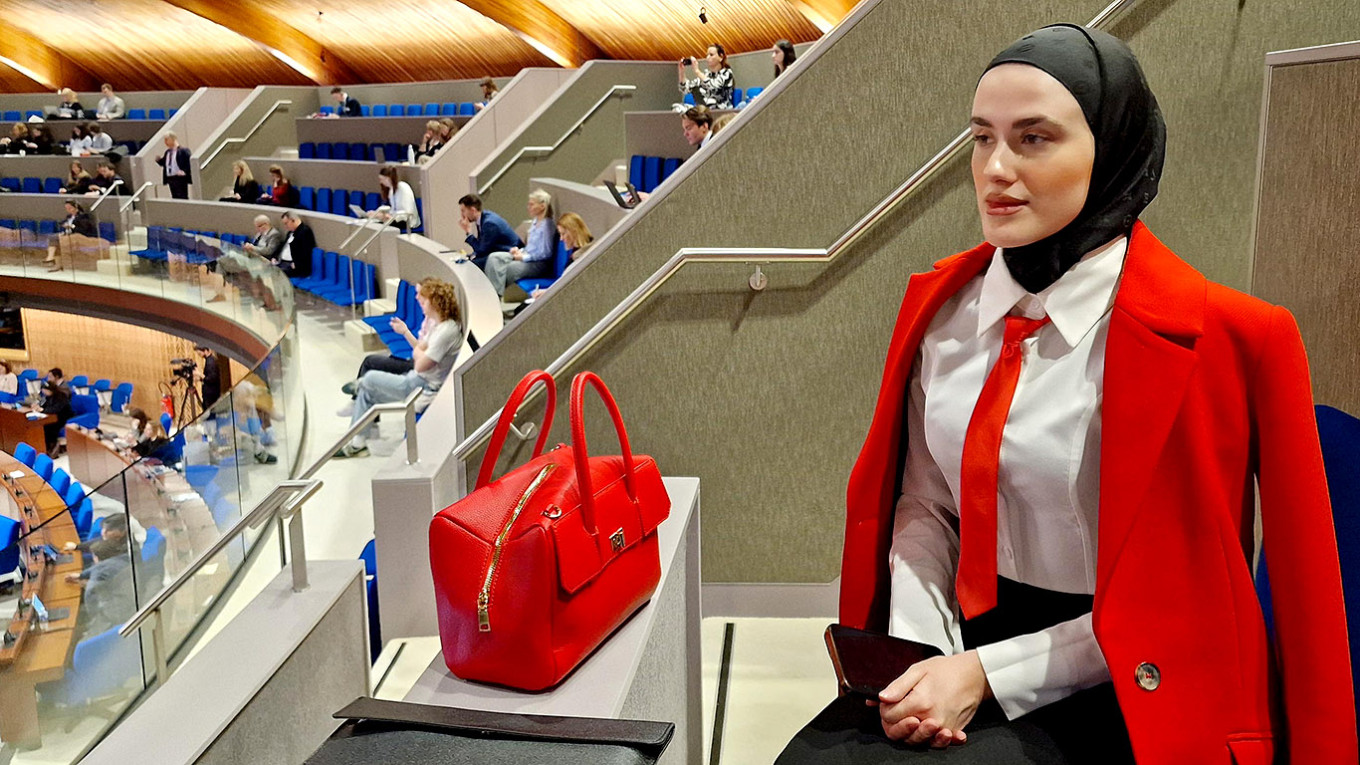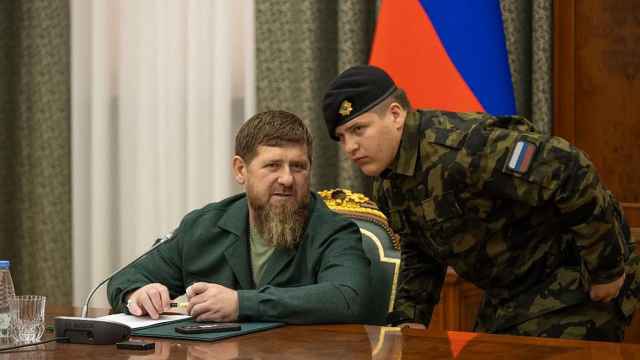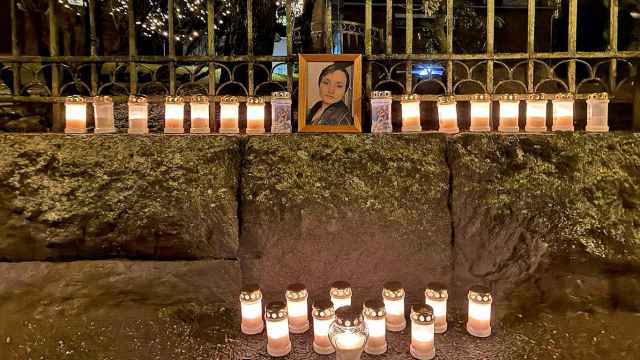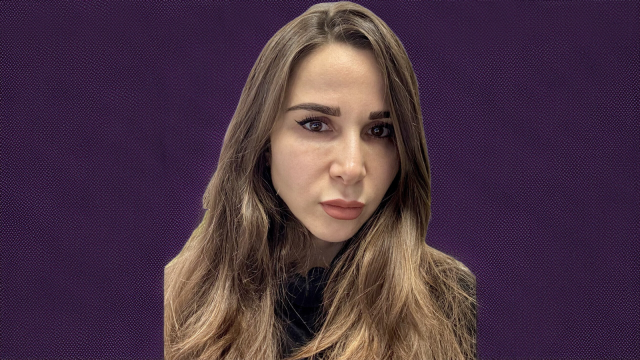Activist Fatima Suleymanova is one of the most visible millennial Chechen women in modern-day politics.
As a representative of the Chechen national independence movement United Force, Suleymanova campaigns on behalf of Chechen refugees in Europe and works closely with Ukrainian MPs. She has been involved in cultural and political events within the Chechen diaspora across the EU and the U.K. and has called for Chechnya’s de-occupation at the Council of Europe.
A Master’s student at Sorbonne University specializing in languages and literatures of Russian-controlled territories, Suleymanova also challenges prejudices in academia toward nations colonized by Russia.
In an interview with The Moscow Times, Suleymanova discussed the importance of talking about Chechnya’s independence, why Chechen activists are often misunderstood by both the Russian opposition and Western academia, the gender dynamics of Chechen independence movements and the challenges faced by Chechen refugees.
This interview has been edited for length and clarity.
The Moscow Times: Why is it important to discuss Chechnya’s independence at international institutions like the Council of Europe?
Fatima Suleymanova: What we are witnessing today in Ukraine is a continuation of what began in Chechnya. If the international community continues to ignore the situation in Chechnya, the threat of Russian imperialism will not vanish — not after Putin, not even after a Ukrainian victory.
Dzhokhar Dudayev, the first president of the independent Chechen Republic of Ichkeria, warned: ‘If Europe agrees that Chechnya is Russia’s internal affair, then soon Europe itself will become Russia’s internal affair.’ His words have proven to be prophetic in the context of the Russian-Ukrainian war. This is why the decolonization of Russia — including the end of the occupation of Chechnya — is essential to dismantling the imperialist foundations of the Russian state. …
Putin called the collapse of the U.S.S.R. the tragedy of the 20th century. But the real tragedy of the 20th century was that the collapse of the U.S.S.R. was never completed. Today, we must not repeat the mistakes of the 1990s. Russian imperialism should be ended for the sake of lasting peace in Europe.
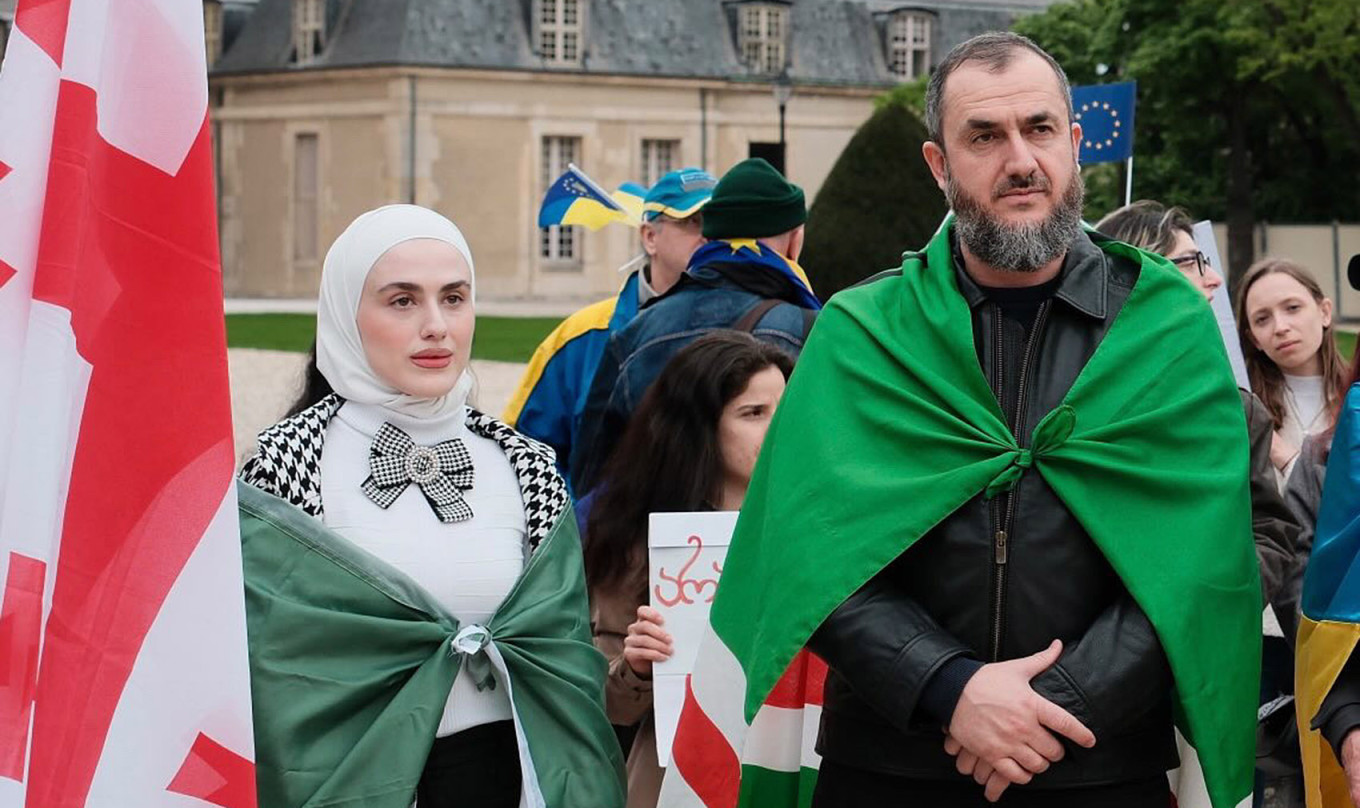
MT: When you speak out against the Kremlin, you often encounter activists from the Russian opposition, and I know that it’s not always easy. Could you tell us a bit more about the problems you’ve had with them?
FS: Each time we speak with members of the Russian opposition about Chechnya, we do not hear anything new. They just repeat the same cliches that Russian authorities repeated for centuries, and use the same tricks.
The Russian Empire promised not to conscript Chechens into its army, but broke that promise. The Soviet Union claimed it would allow us to practice our culture and religion, yet it suppressed both. The Russian Federation told us to ‘take our independence.’ We did, and in response, Russia waged war and began slaughtering Chechen civilians. So today, we refuse to believe the Russian opposition when they promise us that they will grant us broader powers within Russia after the collapse of Putin’s regime. Moreover, we don’t need ‘broader powers,’ we need full liberation from Russian occupation.
We have spoken with many Russian opposition leaders, including the most well-known, Vladimir Kara-Murza and Ilya Yashin. As soon as they were released from Putin’s prisons, they immediately began calling for an end to sanctions, arguing that only Putin, not the Russian people, bears responsibility for Russia’s crimes. But when it comes to the peoples victimized by Russia, Chechens among them, Kara-Murza has no hesitation in making us bear that responsibility for all those crimes, accusing us of killing Ukrainians ‘more easily’ than Russians do, simply because we are not Slavic. This was his response to a French senator who asked whether the situation in the republics like Chechnya could be described as colonial, and whether uprisings were possible there. …
When our national liberation movement United Force issued a statement criticizing Kara-Murza’s xenophobic remarks at the French Senate and called for the creation of a separate, permanent platform within PACE for the indigenous peoples enslaved by Russia, Kara-Murza accused us of calling him a Russian propagandist. … And this came after we had helped a European MP who wished to visit Kara-Murza in prison, and after we had initiated several conversations with him about the future of both Russia and Chechnya. …
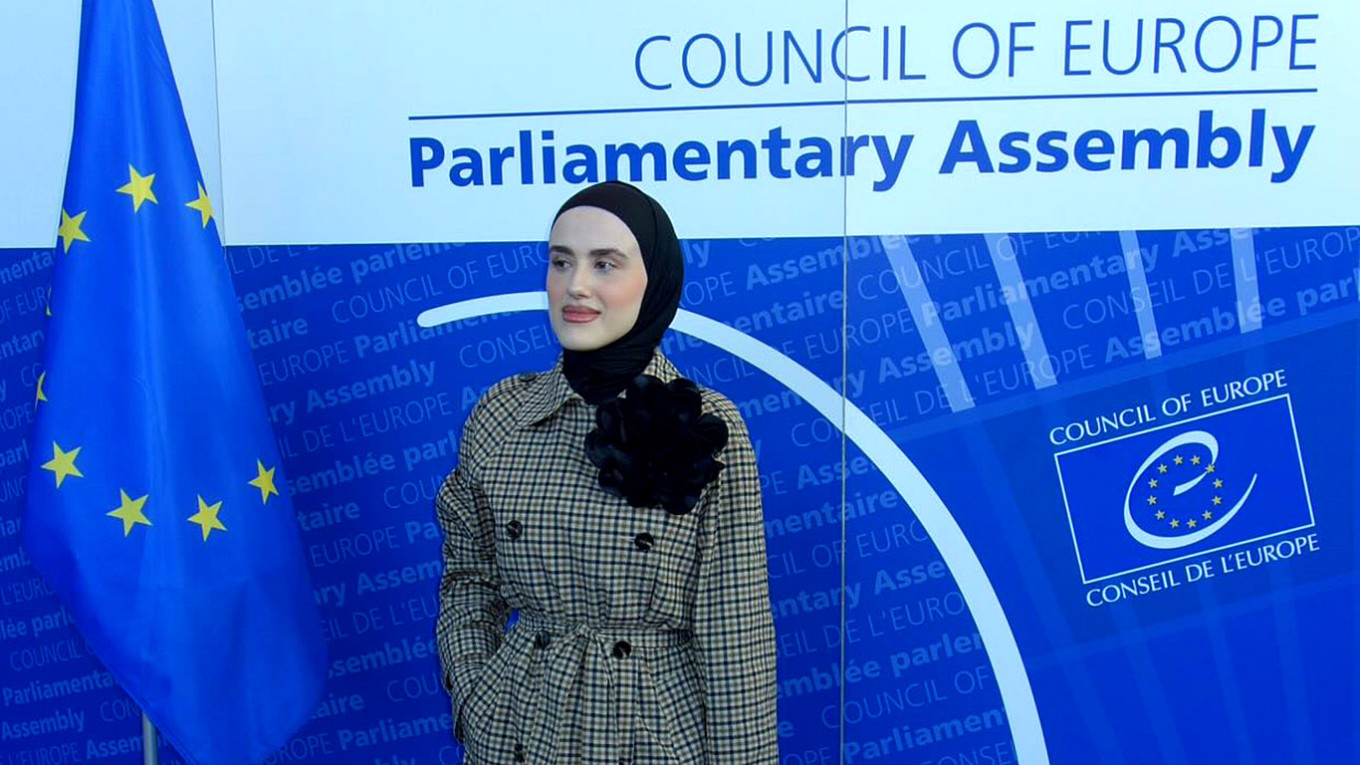
Ilya Yashin has expressed similar views, and did it even more aggressively, to the point that meaningful dialogue with him has become impossible. Both he and Kara-Murza use the same manipulative rhetoric: ‘We want Chechnya to stay in Russia, but if Chechens vote to leave in a referendum, of course they can.’ Yashin even claimed that he believes that Chechens prefer to be in Russia. But if that’s true, then why did Russia launch two wars in Chechnya? And why does Russia maintain approximately 200,000 troops in and around Chechnya even now, during the war in Ukraine?
MT: How do people in the Chechen diaspora react to the fact that you, a Chechen woman, openly participate in politics?
FS: As a Chechen woman in politics, I receive support not only from Chechen women but also from Chechen men. In the Chechen mentality, the love of freedom is so strong that anyone who fights for it is admired. This is why, for example, we have heroes like Gikhoyn Tamasha, a Chechen woman and military leader who resisted Russian aggression during the Caucasus War in the 19th century.
During the two recent Russo-Chechen wars, many Chechen women were involved in the affairs of Chechnya because it was a fight for the independence of the entire Chechen nation and not just a separatist movement, as Russians love to claim.
MT: Chechen and Ukrainian women who resist Russian aggression are treated differently. Tell us more about this.
FS: Both Chechen and Ukrainian women who took part in the wars are heroines for resisting Russian aggression. However, unlike Ukrainian women, who are recognized as heroines by the international community, Chechen women were labeled as ‘terrorists.’ I see this double standard clearly today. It’s especially relevant now, as Ukraine targets Russian military facilities used to bomb Ukrainian civilian cities — strikes that are fully authorized under the laws of war. When Chechens did similar things, fighting back, the world responded very differently.
This difference in perception exists because the international community has chosen to believe Russian clichés about Chechens, rather than listen to Chechens themselves. But if they truly listened, they would realize that Europeans have far more in common with Chechens than with Russians. Unlike Russia, which has always lived under an authoritarian regime, Chechnya has historically been an egalitarian society.
MT: How is Chechnya treated in Western academia? Do you notice any discrimination or double standards?
FS: During my five years of study at Sorbonne University, I always chose to speak about Chechnya during exams whenever we were allowed to select our own topic. But now it’s my final year in university, so I want to do something more meaningful. I decided to organize a conference about Chechnya. My initial idea was to hold it in honor of the 30th anniversary of the First Russo-Chechen War. But when I shared this idea, I didn’t encounter real enthusiasm. Whenever I asked for help, I was redirected from one person to another without receiving clear answers. Instead of guidance, all I heard were reasons why this conference couldn’t or shouldn’t happen. So I changed the topic to focus on the deportation of the Chechen people under Stalin — an act of genocide. But I faced the same obstacles.
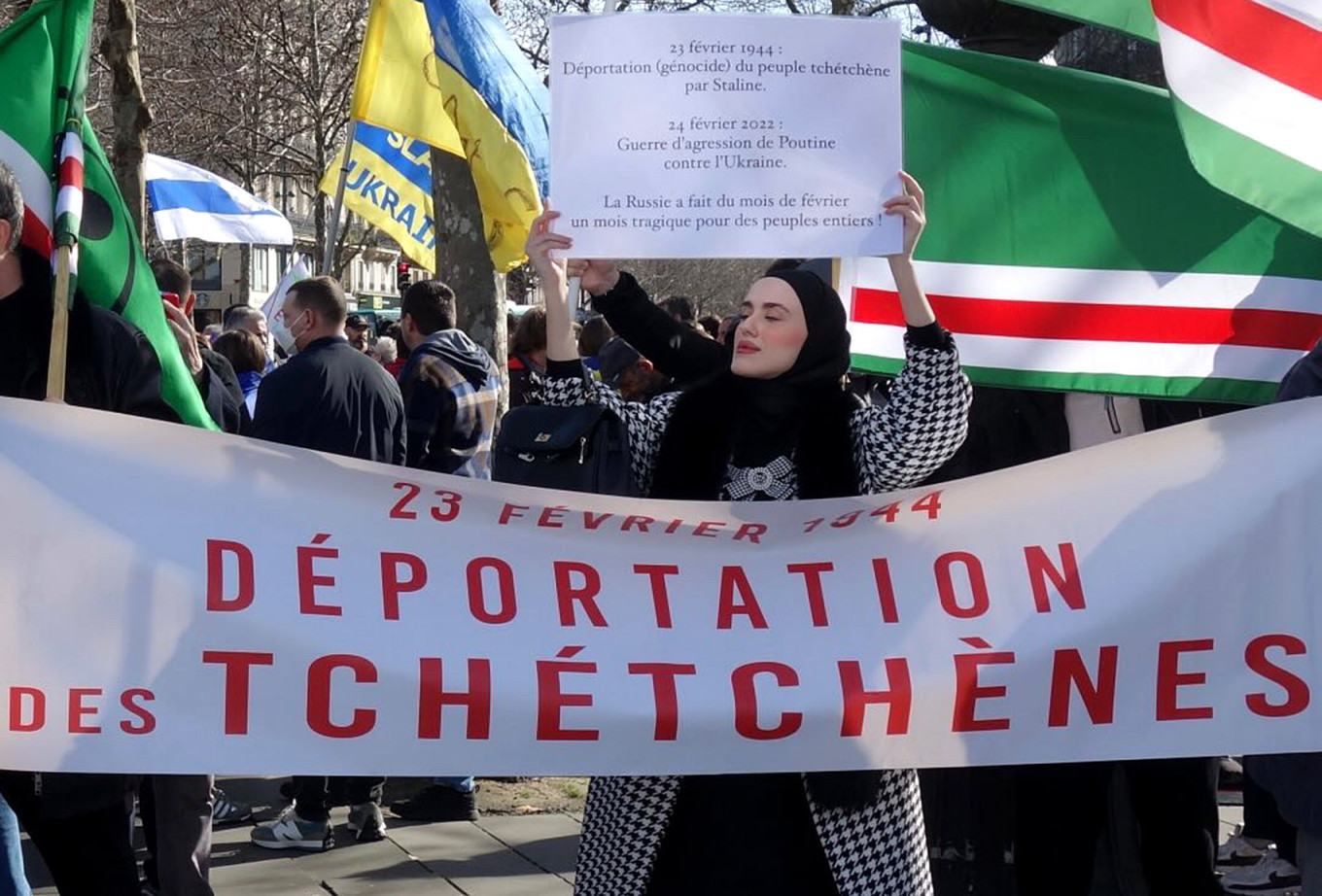
Sciences Po in Paris organized a conference on the 30th anniversary of the First Russo-Chechen War. One of the speakers was Oleg Orlov, a Russian human rights activist. But even at an event that was supposedly dedicated to Chechens, the so-called ‘good Russians’ didn’t hesitate to discredit us. Orlov described Dzhokhar Dudayev as someone who ‘loved war’ and ‘did not seek compromise.’ When we tried to respond to these lies, we were silenced by the conference’s organizers. We eventually managed to speak out, but it was pretty difficult.
MT: In your opinion, and based on your work with Chechen diasporas and international organizations, what is the biggest problem that Chechen refugees face today?
FS: One of the biggest problems is the difficulty of obtaining political asylum. Western countries falsely assume that the Russo-Chechen wars are a thing of the past and that Chechens no longer face danger. But they forget, or choose to ignore, that Chechnya remains under Russian occupation. Even the smallest act of protest against the regime can lead to torture, death, or, since 2022, forced conscription to fight against Ukraine.
Another major issue is the threat of expulsion or extradition. When a Chechen is known to oppose the Russian regime, Moscow issues a Red Notice via Interpol based on false terrorism charges. And yet, European countries have continued to believe those charges — sending Chechen refugees back to Russia, where they face torture, death or forced mobilization. Every day, people ask us for help with similar cases.
A Message from The Moscow Times:
Dear readers,
We are facing unprecedented challenges. Russia's Prosecutor General's Office has designated The Moscow Times as an "undesirable" organization, criminalizing our work and putting our staff at risk of prosecution. This follows our earlier unjust labeling as a "foreign agent."
These actions are direct attempts to silence independent journalism in Russia. The authorities claim our work "discredits the decisions of the Russian leadership." We see things differently: we strive to provide accurate, unbiased reporting on Russia.
We, the journalists of The Moscow Times, refuse to be silenced. But to continue our work, we need your help.
Your support, no matter how small, makes a world of difference. If you can, please support us monthly starting from just $2. It's quick to set up, and every contribution makes a significant impact.
By supporting The Moscow Times, you're defending open, independent journalism in the face of repression. Thank you for standing with us.
Remind me later.


